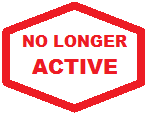Summer Workshop
›The Sociology of Knowledge Approach to Discourse
(SKAD)‹
University of Augsburg, July 29-31, 2019
Organizers: Prof. Dr. Reiner
Keller, Dr. Saša Bosančić, MA Matthias Roche
Please visit www.diskurswissenschaft.de
for up-to-date information and details concerning registration, venues, etc.
Register via E-mail: skad@phil.uni-augsburg.de
Following the
success of the last two international workshops with participants from
different countries spanning from Indonesia to Brazil, from Japan to the
Netherlands, from Scotland to Poland and from Canada to Russia, there will be another
introductory workshop in English on the Sociology of Knowledge Approach to Discourse
(SKAD) at the University of Augsburg in 2019. The organizers invite novice as
well as experienced academics from a wide range of disciplines, including but
not limited to sociology, ethnology, political science, linguistics, psychology
and educational science, to explore the potential of this approach to studying
discourses in the context of their own projects and research.
Discourse Studies today cover a large field of approaches across the social sciences, ranging from work inspired by Foucault to Critical Discourse Analysis and through to hegemonic stability theory, corpus linguistics, and on to more interpretive approaches. SKAD is perhaps the most recent major approach to emerge in this field, drawing from Berger & Luckmann's sociology of knowledge, the interpretative paradigm in pragmatist sociology, and core Foucaultian concepts in the analysis of regimes of power/knowledge. In doing so, SKAD re-directs discourse research towards Foucaultian research interests about questions of social relationships of knowledge & knowing and politics of knowledge & knowing. Concerning itself with ‘ways of doing’, it uses elements of qualitative research design (like theoretical sampling, sequential analysis, analysis by contrasting cases, category building, discourse ethnography) and interpretative analytics.
Since the late 1990s, the Sociology of Knowledge Approach to Discourse (SKAD) has experienced considerable popularity in discourse research in Germany and several other countries. Today, it informs a large amount of discourse research and publications in the field of discourse studies. Workshops introducing theory, methodology and methods of SKAD research have been established in Germany for more than 15 years now. Workshops in French and English have followed suit in the last years (e.g., in the United States, Switzerland, Austria, France, Denmark, Belgium, United Kingdom, Romania).
The Augsburg SKAD summer school builds on the broad interest in SKAD in international contexts. SKAD workshops address core issues of the concrete doing and practice of discourse research. It addresses colleagues from the Social Sciences and the Humanities who are interested in learning about SKAD and its particular profile within the field of discourse studies as well as in doing SKAD research/using SKAD methodologies in their own concrete work in the context of discourse research.
The workshop concerns itself with the following topics:
- SKAD: what is at stake when using SKAD in discourse research?
- SKAD theory: discourses - and how to conceptualize them
- Research questions and conceptual tools in SKAD
- The methodology of interpretative analytics
- Getting into the field: methods of data collection and analyzing data
- Getting out of the field: from data analysis to comprehensive diagnostics
During the workshop, small data sessions will be
included, that is participants will work together on concrete data. Furthermore,
participants may present their own research project and data, which will
discussed in a group setting.

